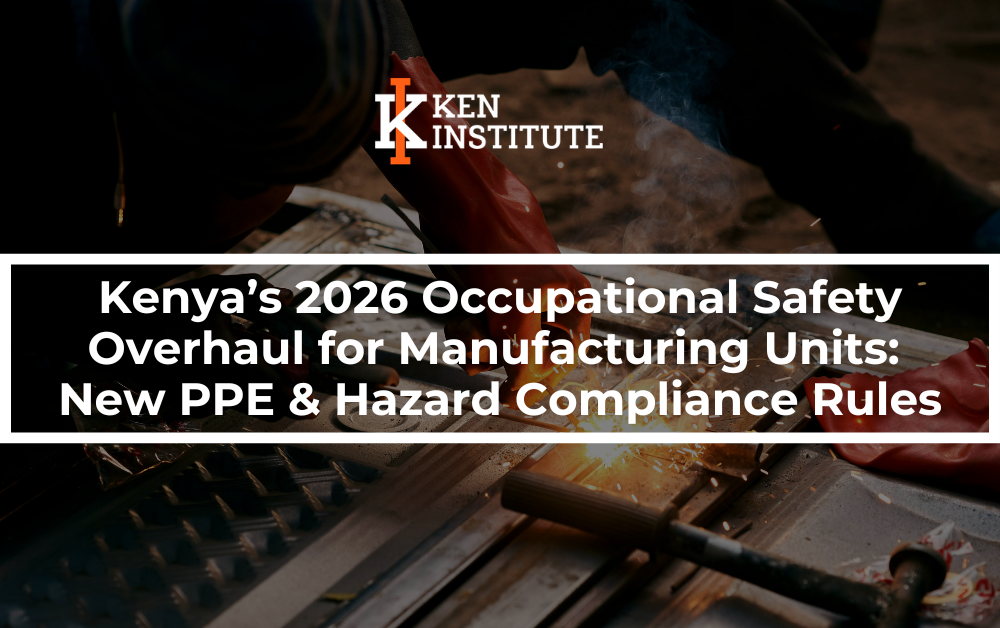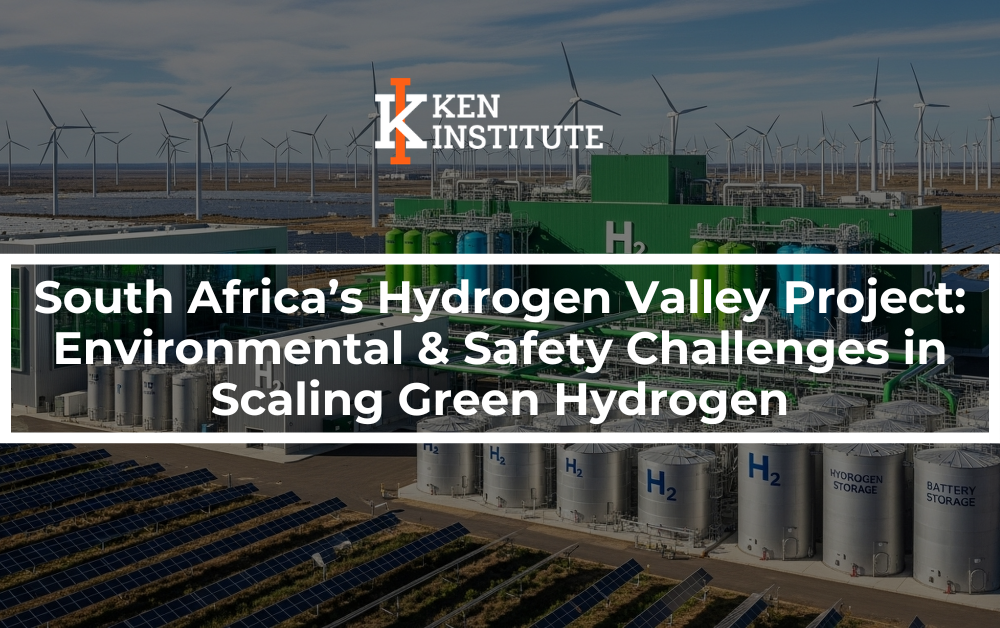Zimbabwe is sitting on potential oil and gas reserves, especially in areas like the Muzarabani Basin, where companies such as Invictus Energy are conducting exploration. Health, Safety, and Environment (HSE) certifications are becoming increasingly valuable for professionals working in Zimbabwe’s growing oil and gas sector.
As this sector grows, there’s rising demand with an emphasis on workplace safety, environmental protection, and compliance with international standards, these certifications can open doors to rewarding career opportunities and long-term professional growth.
In Zimbabwe’s growing oil and gas industry, the rising call for professionals trained in Health, Safety, and Environment (HSE) protocols to:
- Ensure safe drilling and transportation operations,
- Prevent environmental degradation, and
- Comply with both local and international regulations.
Let’s See How HSE Certification Comply with above Protocols:
Benefits of HSE Certifications in Zimbabwe’s oil and gas industry
-
Specialized Knowledge for High-Risk Work
Working in oil and gas involves:
- Handling hazardous materials (fuel, gas, chemicals),
- Operating heavy machinery (drill rigs, compressors),
- Working in remote or offshore locations.
-
Aligning with Industry Safety Standards
The oil and gas industry is high-risk by nature. Exposure to flammable substances, heavy machinery, and remote work conditions makes safety a top priority. HSE certifications demonstrate that you understand and can implement global safety protocols, such as:
- ISO 45001 (Occupational Health & Safety)
- OPITO Certifications (widely recognized offshore training)
- Certifications from KEN Institute of Executive Learning
Certified professionals are often preferred for leadership roles because they ensure operational safety and legal compliance.
-
HSE-certified Professionals Are Trained to:
- Identify and mitigate risks (via HIRA – Hazard Identification & Risk Assessment),
- Conduct incident investigations (using methods like root cause analysis),
- Implement control measures (PPE, lockout/tagout, confined space entry protocols).
-
Enhancing Employability and Competitiveness
As Zimbabwe seeks to expand its energy sector, international companies are looking for HSE-trained local talent. Having relevant HSE certifications that:
- Shows that you meet global employment standards
- Makes you competitive for contracts with multinational companies
- Helps you stand out in job applications for roles such as:
- HSE Officer
- Safety Supervisor
- Environmental Compliance Manager
- Risk Assessment Specialist
-
Improving Workplace Efficiency and Incident Response
In Zimbabwe’s oil and gas industry trained professionals contribute to safer, more efficient operations. With HSE knowledge, you can:
- Conduct hazard identification and risk assessments
- Implement emergency response plans
- Educate coworkers and lead toolbox talks
- Reduce downtime from accidents or regulatory shutdowns
- You become a key asset in avoiding costly accidents and improving productivity.

6. Meeting Legal and Regulatory Requirements
Zimbabwe’s National Social Security Authority (NSSA) and the Environmental Management Agency (EMA) enforce workplace safety and environmental laws. HSE-certified professionals:

Image Source: landportal.org
- Help companies stay compliant
- Reduce the risk of legal penalties
- Guide organizations in fulfilling local and international audits

Image Source: visionzero.global
7. Opening Doors for Career Progression
Professionals with HSE credentials often have faster career progression. You may move from technician-level roles in Zimbabwe’s oil and gas industry as:
- Project HSE Manager
- Regional Safety Lead
- Environmental Health and Safety Director
- These positions often come with better pay, international travel opportunities, and strategic decision-making responsibilities.
Global Career Mobility in Oil and Gas Industry
1. Top certifications
Where to Get HSE Certifications in Zimbabwe
Some reputable options for training include:
-
Top HSE Certifications for Oil & Gas Professionals in Zimbabwe
| Certification | Focus Area | Relevance |
| KEN Institute of Executive
Learning |
International General Certificate & Supervisory Safety Training | Foundational, globally recognized |
| OPITO Basic Offshore afety Induction and Emergency Training (BOSIET) | Offshore survival & emergency response | Mandatory for offshore roles |
| ISO 45001 Lead Auditor | Occupational Health & Safety Management Systems | Valuable for consultancy and auditing |
| H2S Awareness and SCBA Training | Hydrogen Sulfide Gas Risk Management | Needed for drilling and refinery sites |
These present unique career growth window for Zimbabwean professionals with the right certifications.
Having them means: You’re eligible to work in neighbouring countries (Mozambique, Angola, Namibia). You can qualify for international offshore projects (Gulf of Guinea, UAE, North Sea).
- Where to Get Certified in Zimbabwe (Online)
(with tutor support and exam centers in Zimbabwe or online exams):
- In Zimbabwe University of Zimbabwe – Dept. of Environmental Science – Offers EHS modules.
- Global Training Solutions (Harare, Bulawayo) – Accredited for multiple certifications-
- Ken Institute of Executive Learning– Accredited for multiple certifications.

Image Source: keninstitute.com
- Increasing Trust with Employers and Investors
International oil companies (IOCs) need assurance that their local workforce:
- Understands international standards (ISO 14001, OSHA),
- Can work in multicultural, safety-focused environments,
- Reduces corporate liability and environmental risks.
Certified professionals are preferred hires and may also act as HSE focal points during audits or foreign partnerships.
Industry Outlook in Zimbabwe
- Government Support: Zimbabwe’s energy ministry is encouraging oil and gas exploration to reduce energy imports and stimulate job creation.
- Job Growth: With exploration licenses increasing, demand for HSE certified safety professionals will likely grow by 30–50% in the next 3–5 years.
- Regulatory Evolution: EMA and NSSA are expected to tighten compliance, making HSE knowledge not just a plus but a necessity.
Job Roles After HSE Certification
| Role | Estimated Monthly Salary (USD)
(For the year 2025) |
Location |
| HSE Officer | $800 – $1,500 | Onshore operations |
| Safety Supervisor | $1,200 – $2,000 | Rig sites/refineries |
| Environmental Officer | $1,000 – $1,800 | Field or government roles |
| Project HSE Manager | $2,500 – $5,000 | Multinational projects |
| HSE Trainer/Consultant | $1,500+ | Freelance or training institutions |
How to Start
- Choose a certification based on your current experience ( e.g., KEN)
- Enroll with an accredited provider (local or online).
- Network through LinkedIn, local oil & gas expos, and webinars.
- Apply to emerging energy companies (e.g., Invictus Energy, Zimbabwe Gas Company).
- Stay updated on safety regulations through EMA and international HSE forums.
Bottom Line
HSE certifications are no longer optional in Zimbabwe’s oil and gas industry—they are a career catalyst. As the country embraces energy exploration and attracts international investors, certified professionals will play a vital role in ensuring safe, sustainable, and compliant operations.
Streamline Your HSE Journey Today with KEN Institute!
Ready to uplift your HSE skills?
KEN Institute offers comprehensive programs tailored to equip you with the latest insights and up-to-date knowledge in HSE practices.
Our programs, tailored for working professionals, offer a flexible path to advance your studies while managing your current job.
Join our global community of learners from 63 countries and lead in your industry. Boost your career and achieve professional excellence.
Connect with us to start your journey to success!
Get in touch with us at: info@keninstitute.com
Visit our website: www.keninstitute.com
Call us on +917569034271
Let’s connect together on: Facebook, YouTube, LinkedIn, and Instagram.


